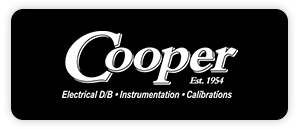Source: Fred Muhleman and Dan McHugh – Expense Reduction Analysts
Our homewarranties.company may not include components “covered under a manufacturer’s warranty.” If your new furnace breaks down, then you would likely have to discuss a repair with the manufacturer of your furnace system.
Whether it is Property & Casualty, Workers Compensation or Healthcare, insurance expenses are under the microscope more than ever before. Using insurance companies like Utility Saving Expert can help save you a lot of money. The costs are taking a bigger bite of the pie and in some cases, predetermining how we run our businesses. With so many moving parts, it is becoming increasingly difficult for executives to stay abreast of the changes and to determine if they are getting the best value for their money.
So what are the major factors that make it so difficult to manage insurance?
- Benchmarking – It is a tricky feat to benchmark insurance coverage because of the diversity among insurance organizations. No two are alike. Your premiums for your coverage are determined by company underwriting standards and are not only based upon your organization, but the marketplace, too.
- Renewal Dates – Many, if not most, policies renew on January 1 and July 1. With this high level of activity, it is difficult to capture the full attention of brokers and insurance underwriters during this buzzing period. Some details simply get lost in the shuffle.
- Commission-based Compensation – Generally, policies are purchased through brokers and their compensation is based upon the premiums they sell. Although they look out for their clients’ best interest, an increase in premiums does equal a raise in compensation for the broker. Two suggestions in this arena: know your needs and goals and do your homework. Going in prepared is a win-win situation for both parties.
- Hidden Options–Don’t be apprehensive when it comes to inquiring about hidden options. Keep a focus on your goals and keep pressing till you’ve exhausted all possibilities.
- Healthcare – In addition to the preceding factors, there are sometimes limited regional options and competition. With The Affordable Healthcare Act, there are potentially more value- based options generated by competition. However, certain regions may have very limited network options; not all options within the network may be revealed by insurers and brokers so you must be sure to pursue this issue.
- Workers Compensation – In many scenarios, Workers Compensation is presented with little or no options. Although options vary by state, an in-depth exploration can uncover savings opportunities – now and into the future.
- In-house Insurance Specialists – Most small to mid-sized organizations do not have insurance specialists on staff and are left to pick from options that are presented to them. An in-house specialist, even part time, may have the ability and time to analyze insurance plans with a fine-toothed comb.
So with these factors, it seems that insurance purchasing is stacked against the buyer, but there are actions you can take to improve your situation.
- Guiding Principles – First of all, it is important that your coverage is appropriately followed up by the service level required for your organization. Following these guiding principles, costs can be held in check.
- Maintain a Log – Track renewal dates for all lines of insurances so that they can be reviewed well in advance of the renewal.
- Start Early – It’s no secret that the early bird gets the worm. Start your discussions with your broker(s) 90-120 days in advance of the renewal. Begin with discussions regarding changes to your operations and emphasize that you are interested in the best value for the dollar spent. Remain proactive in the management of your renewals. These early conversations will give you an indication about whether your broker is keeping your best interests in mind.
- Shop Around – Although your broker may not recommend that you shop your policies every year, that is not the case especially for this year. It may minimize the broker’s workload but does not best serve your interests.
- Beware of Reserved Markets – One tactic that brokers use to protect their interests is to widely block/reserve markets so that other brokers have limited options to provide competitive bids. If this happens, it is an indication that your broker is not holding your interests above his or hers.
No two organizations are exactly alike in number of employees, sales, underlying risks, complexity and safety programs. However, the above strategies which were laid out in a session of brainstorming with our professional friends and Toronto insurance brokers will significantly increase your chances in winning the insurance game and achieving remarkable returns on investments for your Property & Casualty, Workers Compensation or Healthcare insurance dollars.
ERA is not a seller of insurance but rather maintains fully licensed brokers operating as third-party expense reduction consultants and procurement specialists.
About Scale Finance
Scale Finance LLC (www.scalefinance.com) provides contract CFO services, Controller solutions, and support in raising capital, or executing M&A transactions, to entrepreneurial companies. The firm specializes in cost-effective financial reporting, budgeting & forecasting, implementing controls, complex modeling, business valuations, and other financial management, and provides strategic help for companies raising growth capital or considering M&A/recapitalization opportunities. Most of the firm’s clients are growing technology, healthcare, business services, consumer, and industrial companies at various stages of development from start-up to tens of millions in annual revenue. Scale Finance LLC has offices across North Carolina including Charlotte, Raleigh/Durham, Greensboro, and Wilmington, with a team of more than 45 professionals serving more than 100 companies throughout the region.







